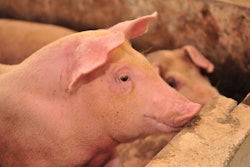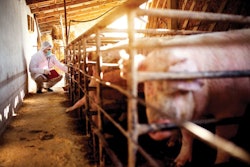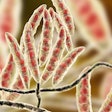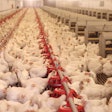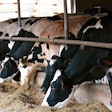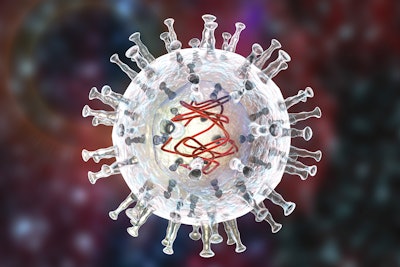
Researchers from the Swedish University of Agricultural Sciences and The Pirbright Institute say they have identified a gene that appears to help pigs recover from infection with African swine fever (ASF) — and could potentially be used to breed more resilient livestock.
According to a paper published in Scientific Reports, researchers infected 17 pigs — all specially inbred to have minimal genetic variation that might interfere with scientific experiments — with a severely virulent strain of the African swine fever virus. Although all 17 pigs were genetically similar, the handful that survived the infection had a small mutation in a single gene, called ACOX3, that may regulate how other genes interact with the virus and could confer some resilience against ASF.
This isn't to say that pig breeders should immediately begin selecting for the gene, said Dirk-Jan de Koning, a professor in animal breeding at the Swedish University of Agricultural Sciences. He said the team identified the genes of interest in the final year of a longer-term study on ASF and lumpy skin disease, which meant that they didn't have the time or resources to pursue their finding beyond making the initial link.
Beyond the need to validate their preliminary results, Koning said researchers still need to determine whether breeding for the mutation could lead to unwanted side effects. The genes of interest are linked to increased sensitivity to heat stress and an increased incidence of certain kinds of cancers in other species, he said, but there is little available research about what they do in swine.
So while it is possible that the gene could lead to breeding or even gene editing swine for greater resilience against ASF, Koning said the science still has a long way to go to get to that point.
“There is a fair bit of fundamental research that needs to be done to progress this area,” he said, “but were quite excited to find this.”
The surviving pigs in the study, Koning said, had also received a dose of an experimental vaccine against ASF before researchers infected them with the virus. Attempts to develop an ASF vaccine have proven hit-and-miss at best; vaccinated animals often still fall ill and can spread the virus. But while the pigs in the study fell ill, those with the ACOX3 mutation survived the disease. That finding, Koning said, could eventually tell us more about how vaccines trigger immunity, which could lead to developing a better vaccine for ASF or to breeding animals that respond more favorably to vaccines.
“We are starting to lift the lid on potential gene or gene processes that may be related to recovering from infection after being immunized,” he said.

